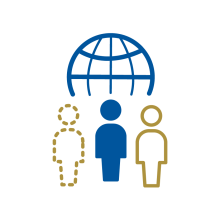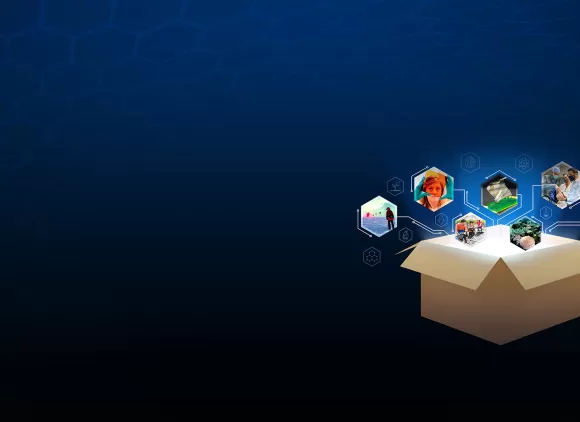The U.S. National Science Foundation's Public Access Initiative ensures the outputs of NSF-funded scientific research are made publicly available to the greatest extent, with the fewest constraints possible and consistent with law.
This page highlights the efforts of NSF's Public Access Initiative, which include:
- Maintaining the NSF Public Access Repository, where NSF-supported publications and other research products are openly available to the public.
- Funding projects that advance the understanding of, provide resources for, and/or encourage practices toward enhancing public access.
- Coordinating agency activities regarding public access.
 On this page
On this page
NSF policy ensures that research outputs from NSF awards are publicly accessible. NSF awardees can find NSF's public access requirements in the Proposal & Award Policies & Procedures Guide in the sections on Copyright and Publication/Dissemination of Grant Materials. For additional context regarding public access at NSF, please see the Public Access Plan published in March 2015 and NSF Public Access Plan 2.0: Ensuring Open, Immediate and Equitable Access to National Science Foundation Funded Research.
FAQ: NSF's public access policies
Data management and sharing plan
Data management and sharing plans are an integral part of project proposals. Researchers are required to include data management plans in their proposals to NSF. Data management requirements and plans specific to directorates, offices, divisions, programs or other NSF units are found in program solicitations or in the links below.
Directorate and division guidance
- Biological Sciences (BIO)
- Engineering (ENG)
- Geosciences (GEO)
- Mathematical and Physical Sciences (MPS):
- Office of Polar Programs (OPP)
- Social, Behavioral and Economic Sciences (SBE)
- STEM Education (EDU)
Program-specific guidance:
Questions concerning NSF policies should be directed to the NSF Policy Office.
NSF Public Access Repository
NSF maintains a publicly available repository of peer-reviewed publications: the NSF Public Access Repository. NSF awardees must deposit all peer-reviewed publications and juried conference papers into the NSF Public Access Repository from awards resulting from proposals submitted, or due, on or after January 25, 2016.
Learn more about the NSF Public Access Repository
The repository continues to grow year by year and will continue to be enhanced with new features in future versions. The current pilot allows researchers to add dataset metadata (in addition to peer-reviewed papers and conference papers) as a research product type, following deposition of that dataset in a disciplinary or generalist data repository. At this time, researchers are not required to submit datasets to NSF's Public Access Repository.
NSF funding for public access projects
To propose a public access project, email publicaccess@nsf.gov for more information.
Projects funded by NSF's Public Access Initiative

FAIROS RCN
NSF is funding a cohort of 10, three-year, multi-institutional projects to start in 2023 to build and enhance national coordination among researchers and other stakeholders to advance findable, accessible, interoperable, reusable, or FAIR, data principles and open-science practices. These are the inaugural awards of NSF's FAIROS RCN (Findable, Accessible, Interoperable, Reusable, Open-Science Research Coordination Networks) open-science program and represent a pooled investment of over $12.5 million in open science from all NSF directorates, supporting 28 NSF awards.

Big Data Innovation Hubs
NSF's Public Access Initiative has also been the home for the NSF Big Data Innovation Hubs, or BD Hubs, program — a national program to foster best practices in using big data for research.

All awarded projects
The NSF Public Access Initiative funds research projects that advance the understanding of public access and open science.
Webinars about public access implementation
No upcoming webinars at this time.
Past webinars
Listen and Learn for Engineering and Computer and Information Sciences and Engineering communities
June 29, 2023
Listen and Learn for Geosciences and Biological Sciences communities
June 16, 2023
Listen and Learn for Social Behavioral and Economic Sciences and STEM Education communities
June 2, 2023


